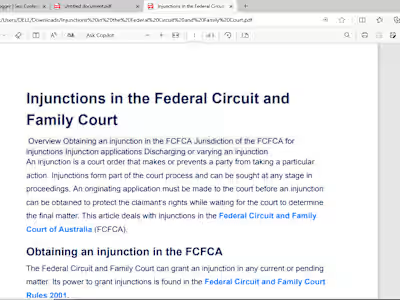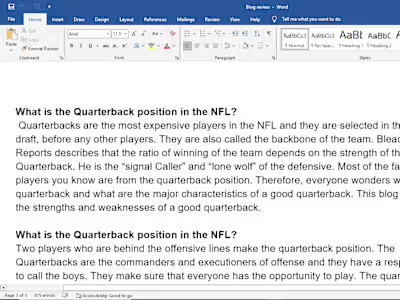Research work
Critically assess the impact of ChatGPT on the need for the changes in law and/ or on the legal profession.
Introduction
Andrew Perlman said, “For the legal industry, ChatGPT may portend an even more momentous shift than the advent of the internet”. OpenAI released its first generative AI model named ChatGPT in November 2022, which quickly became widely used for text generation. In 2023, ChatGPT-4 was released, which is a more comprehensive generative AI model. These AI models have a wide-ranging impact across all industries, affecting the operation of every profession. Similarly, legal experts have acknowledged this change and started incorporating ChatGPT into their work. A generative AI model trains on and stores millions of pages of data, generating answers based on this training data when prompted. The training data determines the efficiency and functionality of the AI model. In the legal profession, generative AI is being used to draft legal documents such as contracts, memos, and petitions. It is also used by various firms for management and hiring purposes. The analytical abilities of generative AI are beneficial in answering and interpreting complex legal questions and concepts. It has the potential impact to transform the whole legal industry by helping lawyers in legal research and drafting. However, various ethical and systematic challenges arise with the use of ChatGPT in the legal profession which need to be evaluated. This essay analyzes the impacts of using generative AI on the legal profession and discusses the shortfall and ethical challenges of this technology.
Impact of Generative Artificial Intelligence on the Legal Profession
ChatGPT has influenced almost every sector of society and the legal profession is also one of them. Law firms, lawyers, and judges are embracing generative AI, such as ChatGPT, in the legal profession and are using it for various legal tasks. For example, a UK-based firm “Mischon de Reya” posted the job “ChatGPT prompt engineer” to increase the efficiency of the legal profession. Similarly, Allen & Overy, a law firm, signed the contract to incorporate Harvey, which is a generative AI platform, to enhance the working of the firm. The impact and usage of ChatGPT and generative AI are multifaceted in the legal profession.
Firstly, it can assist lawyers in the legal research. A lawyer can generate an answer for any research query by providing a prompt. Furthermore, they can ask for the summary of any case law or detection and study of any relevant case law. Similarly, generative AI can generate legal arguments and provide a new legal perspective for the lawyer. For example, a judge praised ChatGPT by saying “jolly useful” after it provided the correct answer to a brief.
Secondly, generative AI can help the lawyer in document generation. ChatGPT’s unique quality lies in writing and drafting legal documents. If a lawyer puts a prompt that he wants to generate a petition regarding a certain case in a certain court, a ChatGPT can generate it. It saves both the time and energy of the lawyers. Even in one case in Pakistan, the judge used ChatGPT to write the legal decision.
Thirdly, generative AI can be used to answer general questions related to the field of law. ChatGPT is good at answering basic questions related to the law. It can help in the generation of legal questions, writing posts, publishing explanations of legal conundrums, and answering multiple-choice questions. Previously unavailable to the general public, ChatGPT now provides an alternative to consulting a lawyer for general legal queries. However, while it is ineffective in answering complex questions, ChatGPT provides accurate responses to basic queries.
Fourthly, generative AI can be used to conduct the legal analysis of complex legal topics. Generative AI, especially the recently deployed ChatGPT-4, can interpret and simplify legal concepts and principles. It also can use complex legal principles and apply them to real-world scenarios. For example, if you want to inquire about the legal penalties for non-payment of any due, ChatGPT can analyze your situation and provide you with legal analysis. Thus, a ChatGPT is helpful in legal research, legal drafting, legal analysis, and general legal inquiries.
ChatGPT has amazing abilities to automate the response and can be incorporated into the management of legal firm affairs. In the realm of legal academia, generative AI is performing exceptionally well. The academic skills of ChatGPT can be gauged by assessing its performance on the bar exam. Researcher tested ChatGPT’s ability to pass the Solicitors Qualifying Examination (SQE), finding that the older version scored 50 percent. However, the more advanced ChatGPT-4 scored around 78 percent and passed the SQE-1 successfully. The training of ChatGPT-4 is more advanced and it passed the licensing exam of England. Similarly, the University of Minnesota Law School has revealed the results of their research on generative artificial intelligence, which proved that ChatGPT passed all the exams and answered questions with a C+ average. This means that ChatGPT can earn a law degree. This assessment shows the abilities of generative AI to help the legal professions and lawyers.
Issues and challenges of using generative AI
The first major issue that arises with the use of ChatGPT is related to the transparency and trustworthiness of the usage. Mata v. Avianca, Inc. is one of the first cases that raised the issue of using generative AI in the legal profession. In this case, Mata’s attorney submitted various case laws that the opposing party could not find. Later, it was revealed that the case law was false and generated by ChatGPT. In this case, the attorney asked ChatGPT to generate cases and it created the cases that were not present. The court identified this mistake and issued penalties against the lawyers. This example gives various lessons about the use of ChatGPT.
Like this project
Posted May 20, 2024
This was a research work for a lawyer
Likes
0
Views
0



